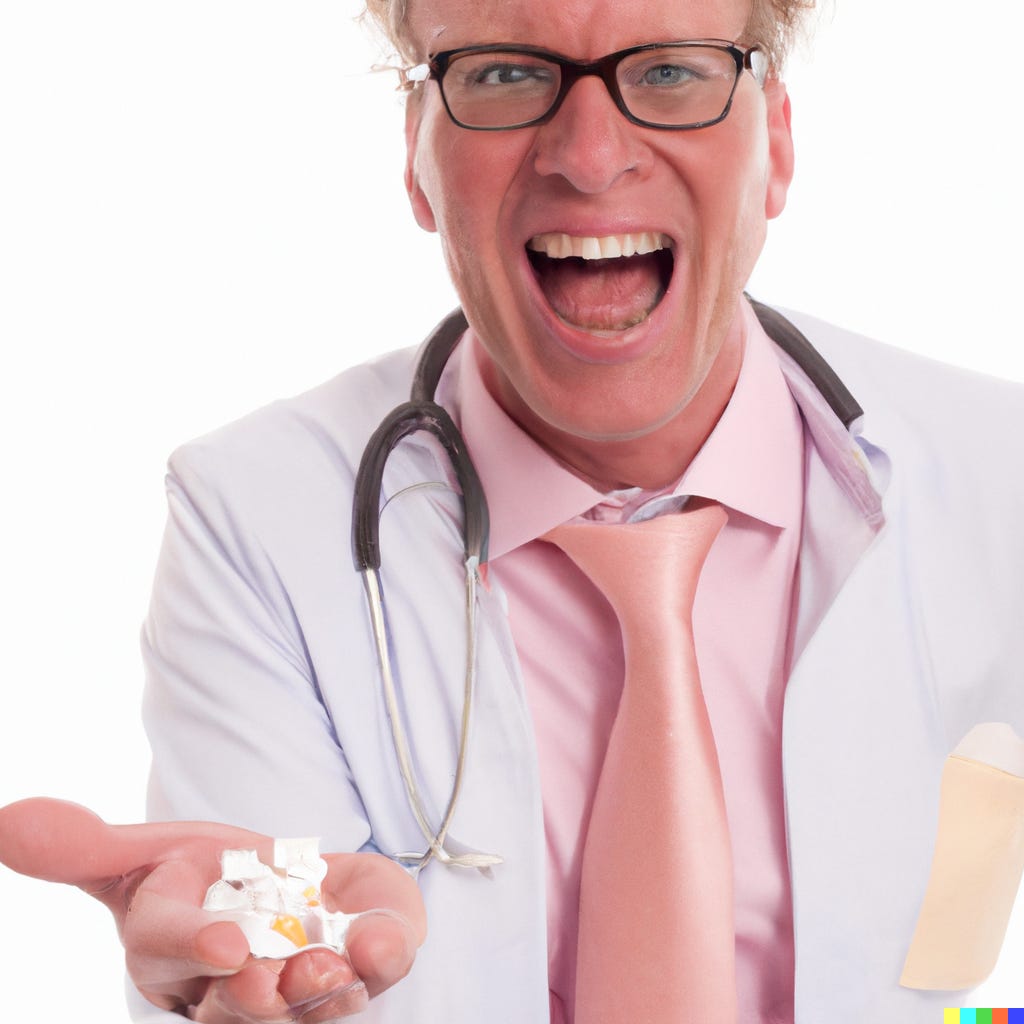The rise of nutritional supplements in paracetamol-land
How taking one kind of pill has become acceptable in the Netherlands
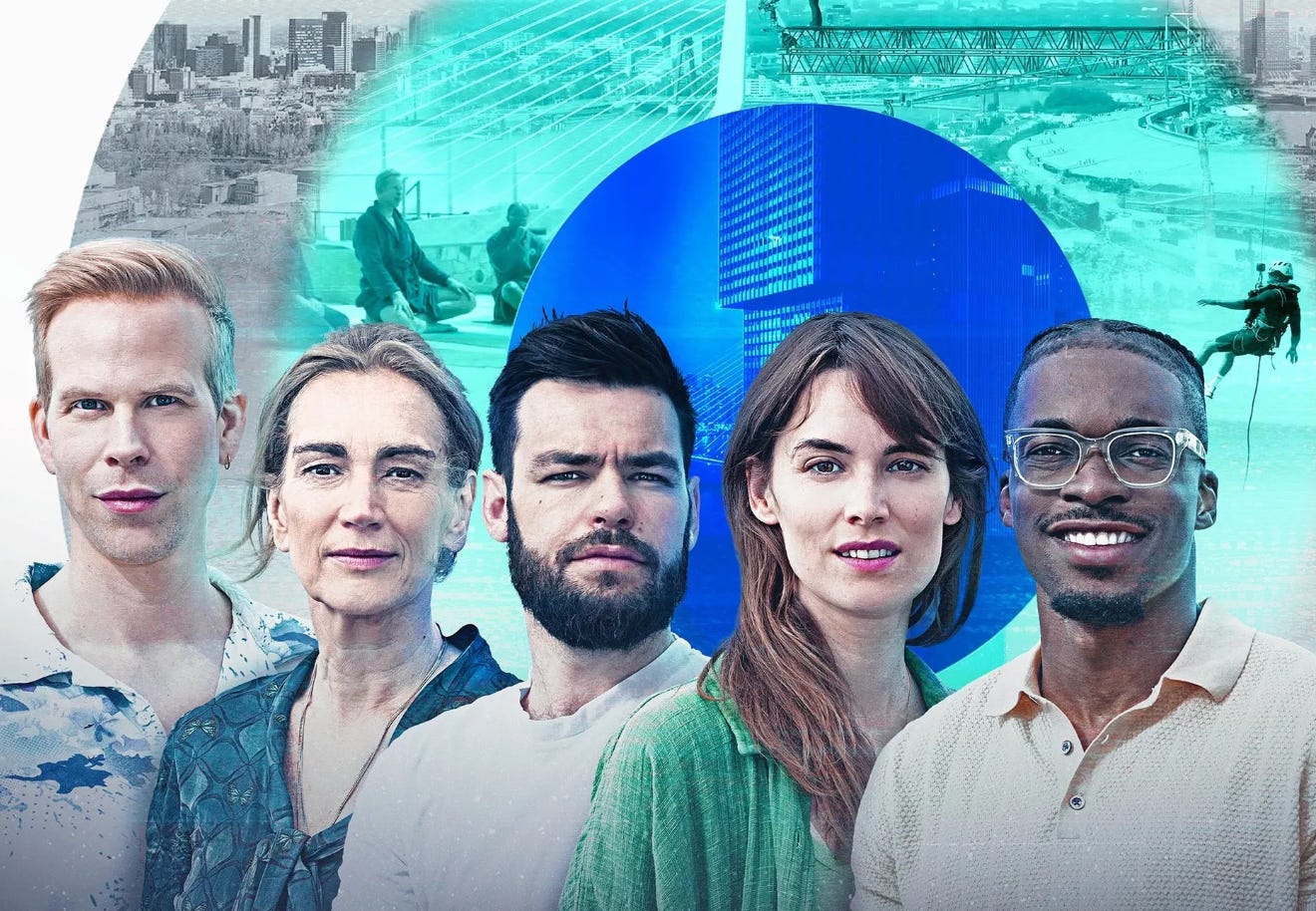
Uproar over the debut of The Biohack Project last week on NPO 1, the Netherland’s most-watched TV channel, got me wondering why nutritional supplements are so popular in this country.
On the program, the host, former Olympic rower and “biohacker” Govert Viergever, guides five Dutch celebs on “extreme challenges”—like being buried alive and balancing atop a skyscraper—while “biohacking” to reduce stress.
What is biohacking? According to Viergever, it’s a way of improving and better understanding one’s body through measuring and experimentation.
According to doctors and Sjamadriaan, a science journalist known for debunking internet health myths, it’s “a cool-sounding pseudoscientific mishmash of medical engineering myths.”
Supplements are a big part of biohacking. And a RIVM study showed that 60 percent of Dutch adults used a nutritional supplement in the period 2019-2021—a ten percent increase in ten years.
Wait a second!
The Netherlands has the one of the lowest antibiotic prescription rates in Europe. Not that you can compare antibiotics to nutritional supplements… but my point is that any immigrant who has been here long enough will tell you that Dutch doctors don’t prescribe much medication. And Dutch people are relatively hesitant to take pills.
So why are they taking so many nutritional supplements?
Doctors call biohacking horseshit

Biohack participants had their stool, urine, blood, and DNA checked. Based on these results, Viergever encouraged participants to do things like: stop eating bread, stop drinking caffeine, and start taking magnesium, etc.
One problem with all these suggestions…
They are “complete nonsense.” That’s according to Bernard Leenstra, a general practitioner who wrote a widely-discussed op-ed in the NRC this week.
The tests show that participant Défano Holwijn has too little magnesium in the blood, which would explain why he has difficulty concentrating. Complete nonsense. If Holwijn's brain were affected by a magnesium deficiency, he would be seriously ill. Before a magnesium deficiency causes neurological complaints, severe muscle cramps occur throughout the body, often accompanied by vomiting. However, Holwijn sits completely relaxed on the couch and is satisfied to hear Viergever's advice: eat more food rich in magnesium, then you’ll be less stressed—in reality, Holwijn would simply pee out that extra magnesium and nothing else would happen.
Actress Monic Hendrickx’ tests showed that she has the “warrior gene,” which causes neurotransmitters to break down slowly. (Whatever that means.) Biohackers like to think this leads to impulsive and aggressive behavior.
This is… also horseshit. As UMC professor of biological psychology Dorret Boomsma told the Volkskrant:
In psychology we have completely moved away from looking at individual genes to tell some simple story. But the message that there is usually no such thing as genetic determinism does not get through.
On De Avondshow this week, Arjen Lubach (the Dutch John Oliver) pointed out that keuringsraad.nl/ (inspection board) dictates that brands are not allowed to claim that magnesium can help with concentration problems or improve concentration skills.
“Ok,” Lubach said, “so you can’t put it on a label, but you can go on NPO1 and say it.”
Supplements can be dangerous
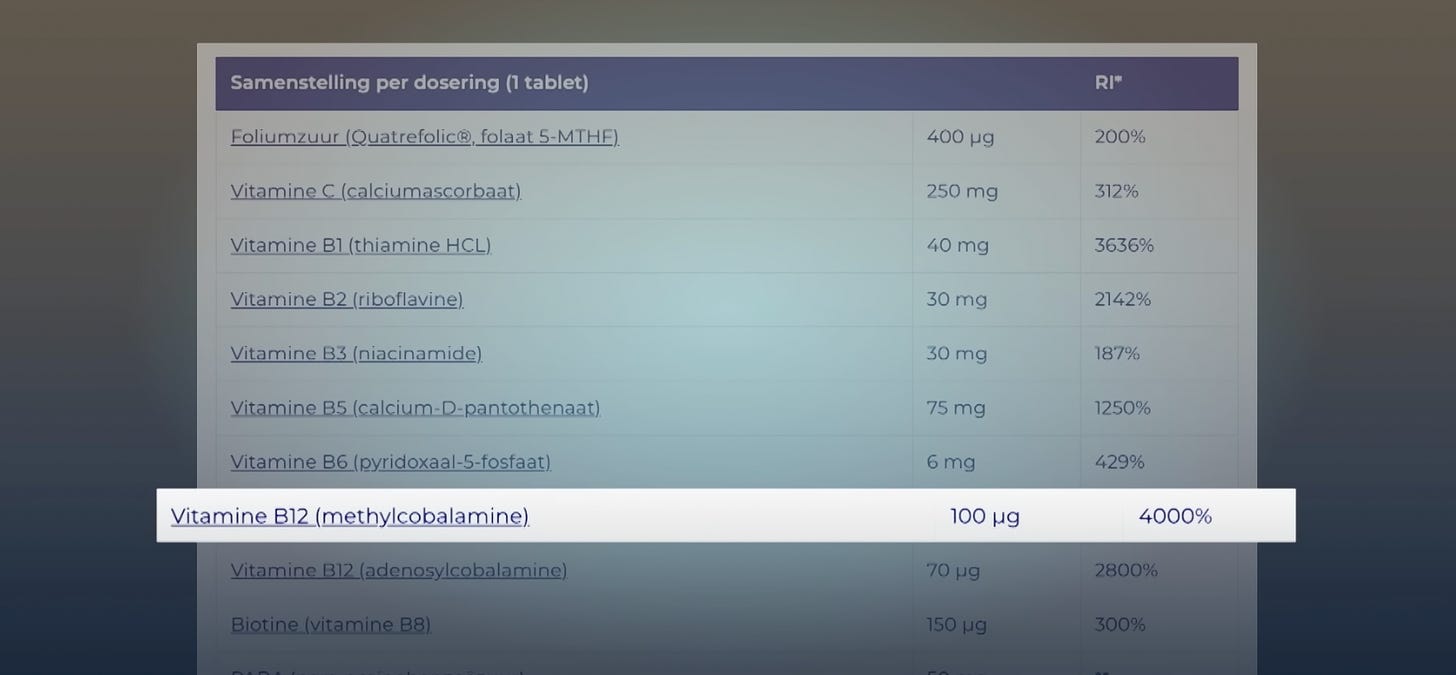
There are specific groups to whom doctors recommend supplements. Like vitamin B12 for vegans, vitamin D for pregnant women and some others. Most everyone else gets the vitamins and minerals they need from their diets.
It seems many people take supplements thinking, why not? A some extra vitamins can’t hurt. Yet supplements can contain thousands of times more than the daily recommended does. And it’s possible to overdose on supplements, which can cause stomach pain, headaches, kidney problems, and neurological complications
According to Dr. Leenstra:
“The unpleasant reality is that for many complaints there is no direct biological cause, let alone one that can be found with blood, urine or DNA tests. The bad thing about [The Biohack Project] is that the program implies that biohacking is helpful to improve mental and physical resilience or reduce complaints. That is deception.”
Why tho?

A spokesperson from Supplement.nl attributes the increase in use “partly due to the shift from offline to online sales of supplements. People are increasingly seeing online advertisements about the importance of nutritional supplements to supplement a healthy and varied diet.”
So, influencers.
In Dutch Vogue, beauty editor Karen van Ede gave a rundown of the some beauty supplements she does and doesn’t take. This part caught my eye:
“I do keep in mind that other research, which can be found in the Natural Library of Medicine, shows that nutritional supplements have a major placebo effect. The swallower thinks they work. They give you the feeling that you are fitter and healthier perhaps simply because you are taking care of yourself.”
Perhaps the Dutch population is starting to believe that taking supplements equates to taking care of yourself, because supplements are, in theory, preventative.
This has come through relentless advertising. And it has led to such a mainstream collective understanding of supplementing as healthy that the national public broadcaster has dedicated an entire prime-time series to biohacking.
Taking medicine, on the other hand, has something to do with not taking care of yourself. Or having not had taken care of yourself. It’s reactive.
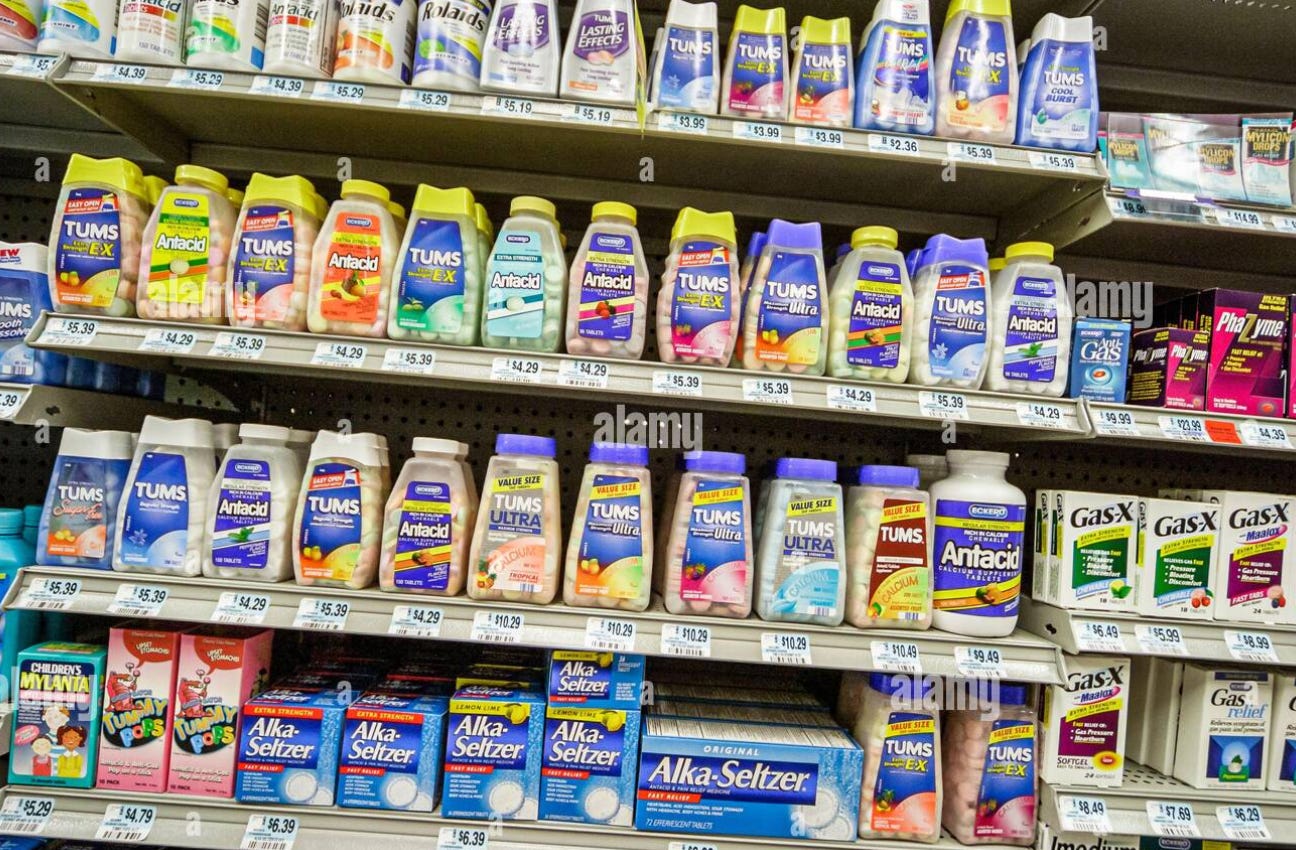
Whereas in America we have an attractively packaged and deliciously flavored over-the-counter solution for every permutation of every imaginable ailment, these pills only work after you already don’t feel well.
When I first started writing this post, I was dumbfounded about the rise of supplements in the Netherlands. But maybe it makes perfect sense that a population with general aversion to taking and prescribing medicine would also be inclined to take supplements. Perhaps it’s all connected the same conception of what it means to be healthy.
🥳 Leuke Dingetjes
Stolen Van Gogh returned!
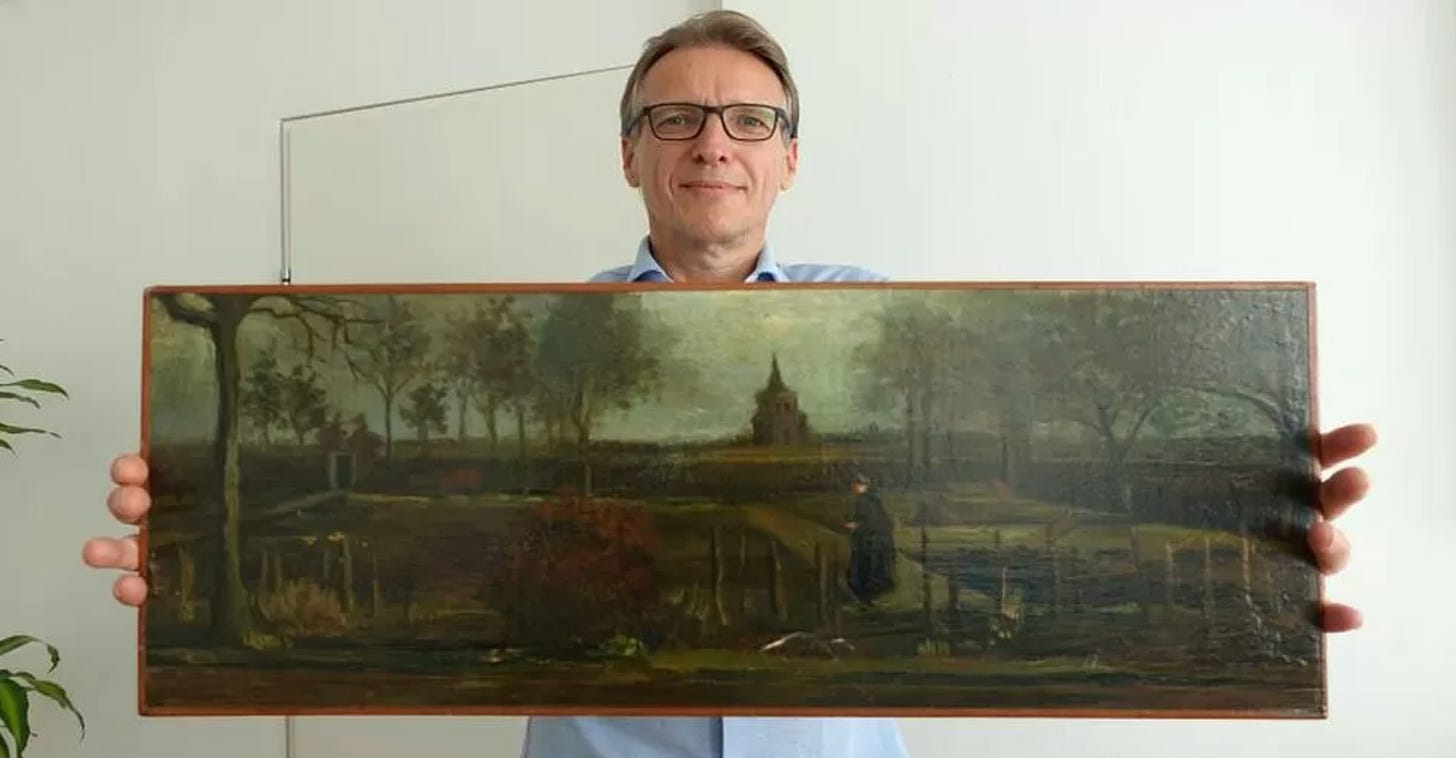
A Van Gogh painting stolen from a Dutch museum was returned to an art detective last week… in a bloody pillow and an Ikea bag. The painting suffered some scratches, but the experts say these can be restored.
A new track from POM
Rock out with this Amsterdam fuzzpop band.
*all typos in this post are deliberate




